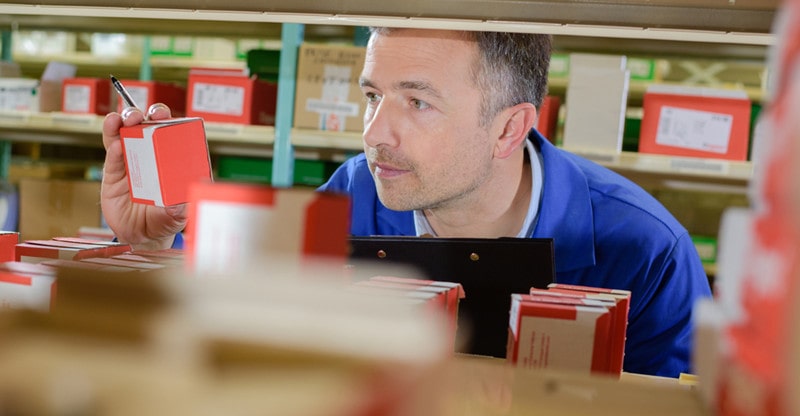The Importance of Pre-Shipment Inspection Services
The most common international trade transactions challenges importers face are the costly import risks, substandard products, and product recalls associated with insufficient pre-shipment inspections. Thorough pre-shipment inspections can help importers and traders guarantee that the quality of the goods shipped off will meet the standards outlined in the sales contract.
What is a Pre-Shipment Inspection?
A Pre-Shipment Inspection (PSI) is an essential step in the quality control process. It is carried out by either a Quality Control Department or an independent quality control service/agent where goods are quality tested before being dispatched. This procedure ensures that production complies with the specifications of the buyer and/or the terms of a procurement order or letter of credit.
A pre-shipment inspection is also a step carried out by traders, agencies, buyers, and other trade operators. They inspect newly manufactured products to ascertain the quality and quantity of the merchandise, including any defects before they’re shipped to comply with consumer laws.
The pre-shipment process includes acceptance sampling, inspection, and testing, which can be agreed upon between a supplier, a buyer, and a bank. A pre-shipment inspection can be performed at various stages before shipment. Aside from quality control measures, a pre-inspection also involves checking of all documentation and verification of compliance with industry standards.
When is the Pre-Shipment Inspection Conducted?
The pre-shipment inspection can be carried out in various production phases before the goods leave the exporter’s factory. However, the inspection is generally conducted on finished products when 80% of the order has been packed for shipping. The pre-inspection must be done according to standard Acceptable Quality Limits specifications for the product or customer requirements. During the inspection, the inspectors must follow the company’s quality standards and the destination market’s standards.
The Crucial Elements of a Pre-Shipment Inspection
The significance of quality control and pre-shipment inspection as a part of a company’s overall quality control strategy cannot be understated. Therefore, using a reputable third-party inspection service, such as on this page, is crucial to ensuring that goods produced are of acceptable quality before reaching the client.
- Product Quality and the Customer
It may seem almost too obvious to say that a pre-shipment inspection can improve product quality. However, most businesses don’t realize just how much of an effect quality can have on their bottom-line. A quality product leaves a lasting impression on your customer. Clients will remember a bad quality product just as much as a good quality product. Building a good reputation with your client is essential for any business, and quality standards are the driver for attaining that. The Acceptable Quality Limit, defined in ISO 2859-1, ensures that your defect rate is below a certain threshold, thus maintaining quality.
- Packaging
Packaging helps to ensure that the client’s items arrive undamaged, saving time and money. Quality packaging can protect against spillage, rough handling, and unauthorized entry. A company that uses optimized packaging can help curtail shipping costs and save the customer more money. Overall, the inspectors have to ensure that the packaging meets the customer’s standards and expectations.
It’s crucial to ascertain the durability and safety of items being shipped. Extra care should be enforced when packaging personal protective equipment (PPE), sterilized products, and dental tools. For instance, Primo Dental Products sterilization pouches are used to pack dental tools for safety storage and transport. The consumer and business markets are very strict when it comes to receiving packages especially during time of pandemic.
- Labeling
Labeling goods properly during shipping is a crucial step in the delivery process. This fact may seem obvious, but it’s so simple that it’s often overlooked or neglected. Ideally, a label should contain both the sender and the recipient’s name and address, the content description, the shipping service, tracking number, and scannable UPC barcodes. Missing regulatory labels will most likely cause product recalls or fines, while incorrect or non-scannable bar codes can lead to massive customer losses.
The Benefits of Pre-Shipment Inspection
Shipping can be domestic or international, crowding ports and couriers and the strike of pandemic makes the industry more pressured. Because of the increased demand in online shopping, dropshipping, and other e-Commerce solutions, the shipping industry switched from manual to automated methods. So, pre-inspection plays a vital role in ensuring safe shipping and delivery of ordered items.
A side-effect of globalization is increasingly significant impediments to growth for international buyers in world markets. The different standards and requirements in various countries and increased fraudulent trade-conduct are among the industry’s most challenging problems.
Pre-Shipment Inspection provides both the supplier and the customer the security and assurance they need. Here are some reasons Pre-shipment inspection has become a pre-requisite for both importers and exporters over the years.
Validating the quality of goods before shipment is the last line of defense against defects before the product will reach the customer or client. While some companies try to bypass this testing phase, the functional testing carried out during a PSI can be one of the most critical steps, saving your company material, time, and monetary damages in the long-run.
A non-functional out of spec product can not only damage your companies reputation but even escalate to litigation if there is personal injury or property damage to the client.
Pre-Shipment Inspections aim to prevent such incidents by catching the defects before they reach the customer.
Carrying the PSI out in China gives you the peace-of-mind of a proper quality inspection, along with the guarantee of an entirely impartial assessment performed in the most cost-effective manner possible.
While you may think that you cannot afford a PSI, the truth is that you cannot afford to neglect it. In some circumstances, the Pre-Shipment Inspection is mandatory.
Conclusion
Pre-shipment inspections may seem like an unnecessary and costly additional step. However, it could mean the difference between a satisfied customer and a disappointed one. The former is even more likely to become a return customer. Ensuring product quality, proper packaging, and regulatory labeling minimizes the risk of defects and boosts the company’s trust.
Location is a determining factor that affects the cost involved because different governments have varying compliance measures. However, if you opt for a pre-inspection service in China, you can expect cost-effective services with technical expertise, quality control efficiency, and minimized procurement risks.





